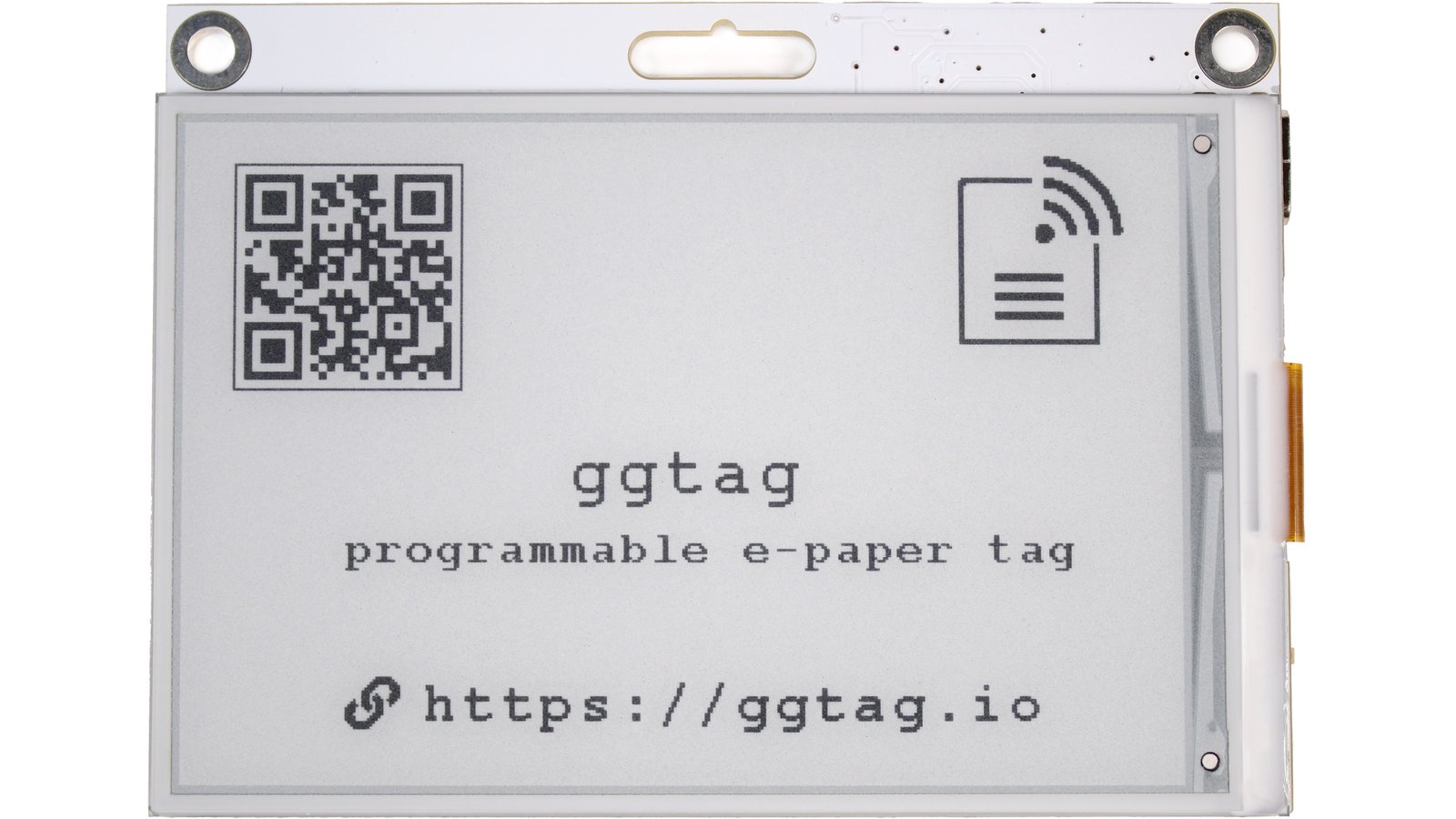GGtag is a compact e-paper badge designed for versatile programming capabilities. It can be programmed with the web interface, USB serial, or sound! GGtag is centered around the RP2040 microcontroller and features a 3.52 " e-paper display. GGtag supports USB serial programming and emulation of 125 kHz RFID tags (ASK and FSK), providing flexibility for various applications.
GGtag boasts a web interface that simplifies the creation, editing, and sharing of tag designs. Users can program these designs directly onto the device through our web browser. The interface supports a range of elements, including QR codes, images, and FontAwesome icons. Whether using sound or USB, GGtag can be programmed through this web-based interface.
As an addition to its practicality, GGtag serves as a platform for experimentation with data-over-sound and e-paper displays. All resources, including reference implementations, hardware specifications, and documentation, are openly accessible, facilitating adaptation for various custom applications.
GGtag supports two programming modes: sound and USB serial. Sound programming requires inserting a CR2032 battery into the holder and switching to the BATT position. For USB serial programming, GGtag can be connected to a USB host and switched to the USB mode. Both modes are compatible with the web interface hosted at ggtag.io, accessible through standard HTML browsers.
Programming GGtag via sound is achieved using the custom ggwave library. In this video demonstration, multiple GGtags are programmed simultaneously using a mobile phone. After the initial programming, GGtag enters deep sleep mode, requiring manual activation by pressing the side button. To conserve battery life, it is advisable to switch back to USB mode after programming.
For USB serial programming, GGtag relies on the Web Serial API through the web interface at ggtag.io. Compatibility extends to modern web browsers, such as Chrome and Edge, with mobile Chrome on Android also supported. This demonstration illustrates the use of a Pixel 5 phone for USB serial programming.
GGtag’s capabilities include the emulation of 125 kHz RFID tags, achieved through an ATtiny85 MCU and the avrfid firmware. Upon receiving an RFID command, GGtag generates the corresponding avrfid firmware and programs the ATtiny85.
GGtag is equipped with the following features and specifications:
A comparative analysis highlights GGtag’s key attributes in relation to similar products in the market, considering factors such as weight, display size, resolution, connectivity, and more. This provides a comprehensive overview of GGtag’s strengths and unique features.
| GGtag | Badger 2040W | Adafruit MagTag | Inkplate 2 | Badgy | |
|---|---|---|---|---|---|
| Weight | 32 g | 32 g | unknown | unknown | 29 g |
| Display Size | 3.52 " | 2.9 " | 2.9 " | 2.13 " | 2.9 " |
| Resolution | 360 x 240 | 296 x 128 | 296 x 128 | 212 x 104 | 296 x 128 |
| Connectivity | USB Serial, Sound | WiFi | WiFi | WiFi, Bluetooth | WiFi |
| USB-C Available | Yes | No | Yes | Yes | No |
| Open Source | Yes | No | Yes | Yes | Yes |
| Web Editor | Yes | No | No | Yes | No |
| Passive RFID | Yes | No | No | No | No |
| Runs on USB Power | Yes | Yes | Yes | Yes | Yes |
| Runs on CR2032 Battery | Yes | No | No | No | Yes |
| Battery Life | 2-3 days | days | weeks | months | days |
Extensive support and documentation are readily available through our public GitHub repository. Both firmware and hardware are open source and licensed under the GPL v3, promoting transparency and flexibility. Detailed hardware specifications can be found in the hardware directory for those interested in exploring the technical aspects.
Produced by Eurolan in Sofia, Bulgaria.
Sold and shipped by Crowd Supply.

Sound programmable e-paper badge with RFID

We design and manufacture quality networking equipment - media converters, Ethernet switches, IPTV STBs. Our products are designed by our own R&D team and manufactured in our factory, based in Sofia, Bulgaria.